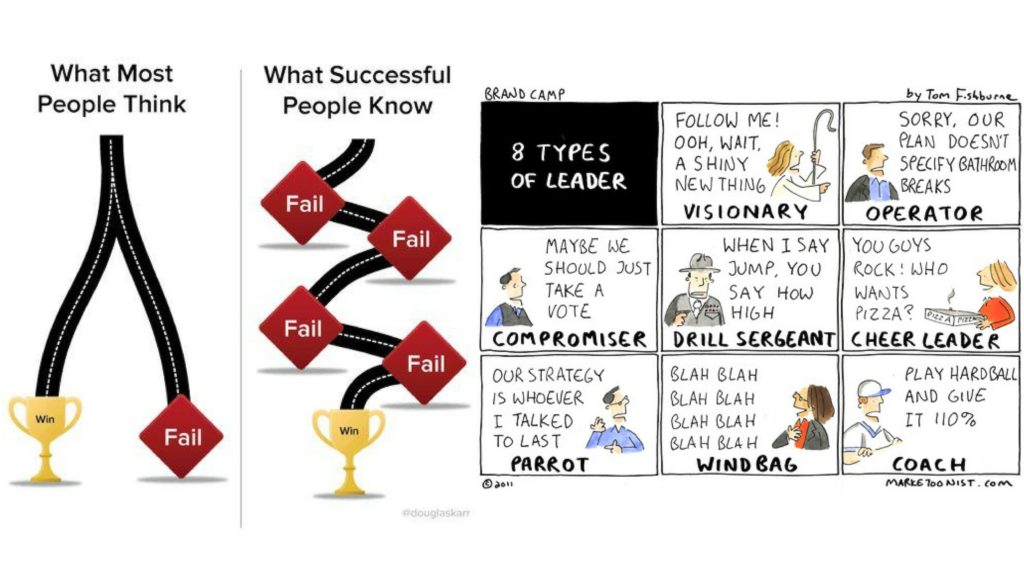Leading with respect and not fear

“I speak to everyone in the same way, whether he is the garbage man or the president of the university.” Wise words from Albert Einstein! It is a good mantra to follow for anyone, especially a leader.
When appointed a leader, enormous powers are invested in you. Suddenly, your words and actions are given more weight and attention as well as more scrutiny. However, it can also instill fear. People won’t just want to look at you, they will observe you closely and be forming their own opinions about you as a leader.
When a new leader is appointed, there is always a sense of apprehension. In your first 6 months as leader, you will help define the ethos of the work setting and it will also define you as a leader.

Initially, there will always be that element of fear as leaders hold power. It takes time to develop “a healthy respect for yourself”. By using power wisely and justly – an environment of respect and excellence can be embedded and the natural fear will be eliminated.
People may not like you or agree with you all the time, (who said leadership was about liking someone) but they will listen to you out of respect, particularly if your actions are based on integrity.
What you don’t want is people who respect you out of fear! Here are some things to consider when developing that hard-earned respect.
1. Be an excellent role model and maintain integrity at all times
Earn your respect by role modelling. Leadership is tricky. The initial adulation or “so-called respect” will soon disappear. Those people who you may have thought were friendly may turn on you. Doesn’t matter! As long as you remain an exemplar role model and people know that every action you take is made with integrity, they will learn to respect you.
2. Be open, transparent and discerning
Be clear about what you want to achieve and be honest at all times. Keep an open door policy and allow people to come to you with problems. However, check that they have gone through the correct protocol. Explain your rationale and reasoning when finding solutions or making decisions. Admit when you are wrong as it demonstrates humility. Leadership is never about being liked. It is about making good and better judgements for your organization.

3. Listen actively and be reflective
People will fuel you with lots of things – positive and negative. Listen carefully to all and make decisions that are always based on the greater good. Avoid being a “yes person” at all costs. There will be situations where you have to say no to and reflect carefully before you say, “No”. Staff won’t say it to your face but they do talk about leaders and you don’t want to be known as a pushover! Neither do you want to be known as a “Rottweiler”!
4. Stay calm and focused on ensuring quality first standards are maintained
Any leaders’ role is to find solutions and maintain excellence within their organisation. Sometimes hard and difficult conversations are needed to be had, especially if you are a school leader. Your business and commodity are children. They don’t know any better, so they deserve the best whether they are being educated at Eton or Harrow or a school in a highly deprived area. Child-centred decisions create respect and not fear.
5. Make things happen and follow through your actions at all times
When solving things or dealing with something, ensure you dot the “I’s” and cross the “T’s”. As a leader, we can start things but the key thing is to be a finisher. Following things through thoroughly and develop a “no blame culture” with clear structures of accountability and support. Work hard to create sustainable systems and solutions. It develops respect and people will value and admire you for being a “sorter” not just a “talker”.

6. Empathise not sympathise
Be measured and calm in your approach and tackle the issue head-on with the view of producing a good and better outcome. Always remain approachable and listen attentively to each situation and assess it carefully on its own merit and act on it carefully. Sympathy can be given but empathy helps define next steps and resolutions and supports the person in question more effectively.
7. Remain compassionate yet firm and incisive
Never lose your rag when things happen or mistakes are made. That does create fear. Hard as it may be, it is during the handling of a crisis that a leader can define him or herself truly. Leaders are tasked to make tough decisions. Think deeply and carefully and collaborate with your teams. Try to make decisions as compassionately as you can. It is always about making the right call and sometimes people will not always agree. Stand your ground when you need to do so.
8. Never indulge in toxic communication or actions
Avoid gossiping and promote professionalism. Talk to staff rather than email. Emails can be contentious and the wrong wording can create fear and anxiety. Email exchanges, unprofessionalism and staffroom gossip can create a toxic culture which needs to be avoided at all costs, as it affects the well-being and moral purpose of any organization.
Never ever play staff off, especially your leadership team. Sometimes when hard decisions are made, people can take it wrongly and spread a culture of fear and untruths about the situation or the person. Nip those in the bud immediately.
Support your staff when they need your protection especially when they have to make tough calls as you can’t do everything and make every decision. You need to empower them to do their jobs properly. Besides, they are your work family and they will need you, just as much as you need them.

Being a leader should not instill fear in people, but …it should create a challenge. There has to be an appropriate challenge where things will be asked, probed and questioned for the right reason.
A feedback culture that is clear and constructive which also provides essential support must run like a steel thread within your school or organization. If there are issues and you disagree -speak behind closed doors. Sort problems with staff or the wider community at source without having to go higher. That really does earn respect!
Leaders have power – a lot of it. The leader who is respected most of all -is the one that acts with discretion, gives credit where its due and acts with integrity.
Sometimes, being a leader means you need to be, dare I say, a “control freak” in the nicest possible way. This is to ensure the positive ethos and culture of your school or organization is embedded.
Demanding excellence at all times and remaining approachable despite everything that may happen is vital. Furthermore, by ensuring you run a tight ship and treating all people -from the bottom to the top well- by valuing them with equal measure, respect can be truly earnt!








Responses